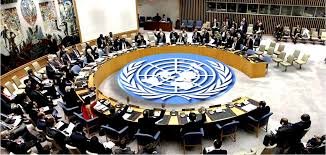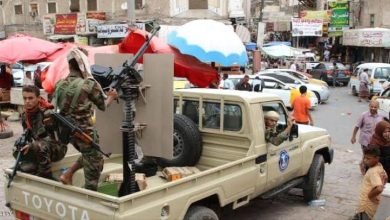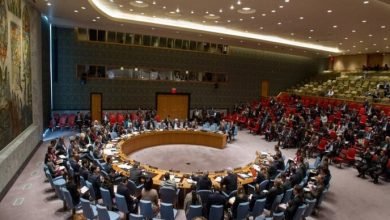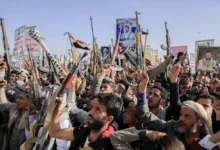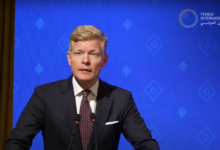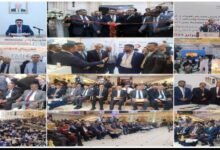Both political settlement, military solution remain elusive in Yemen

SMA NEWS – ADEN
The inconclusive military operations in Yemen’s Bayda province, south of the capital Sana’a and in the Marib province, east of the capital, have shown that there is no military solution to the violence that has been raging on in the country.
For seven years, without a political solution in sight, the Yemeni conflict has steadily exacerbated the dire humanitarian crisis in the country.
Over the past few weeks, the two warring camps in Bayda claimed control over vast swathes of the highly strategic province at the crossroads between Sana’a in the north, Marib in the east, Al-Dhalea in the west and Abyan in the south.
Fighting in Bayda continues, even as the Houthis still try to break through government defences in the key city of Marib. The Iran-backed militias have been attempting since February to capture it from the internationally-recognised government. If they succeed, it would complete their control over the northern part of Yemen.
Despite the efforts of the government forces in Bayda, no military breakthrough has been achieved. The government, observers say, had wanted to make advances in the province, aiming to strengthen its chances of controlling other regions and so weaken the Houthis’ rigid rejection of peace efforts and the acceptance of a nationwide ceasefire.
The Houthis, however, claimed they had recaptured some parts in Bayda, prompting President Abd Rabbo Mansour Hadi to open an investigation into what happened in the province .
On the Marib front, the military stalemate continued with the Houthis still failing to storm the centre of the province.
The Houthis have for years attempted to take Marib to complete their control over the northern half of Yemen. But since February, they have waged an intensified offensive on multiple fronts, while hitting the residential city centre with missiles and explosive-laden drones, killing and wounding dozens of civilians.
So far, the militias have made only incremental progress, inching slowly across the desert plain, because of Saudi airstrikes that wreak heavy casualties in their ranks. Government and medical officials in Marib estimate that thousands of fighters have been killed or wounded, mostly rebels, since February.
In the Houthi-held capital, Sana’a, mass funerals and death announcements of soldiers, some of them children, indicate how costly the battle has been, though Houthis do not release official death tolls.
The gruelling battle over the remote city seems intertwined with the sluggish efforts for peace. The Houthis appear to hope capturing Marib will give them the upper hand in talks. Meanwhile government officials complain that American and international wariness at fuelling the interminable war prevents them from getting weapons they need to win in Marib.
Marib, some 115 kilometers (70 miles) east of Sana’a on the edge of Yemen’s large deserts, is a strategic gateway from the central highlands to southern and eastern provinces. It is also home to oil and gas fields where international firms including Exxon Mobil Corp. and Total SA have interests. Its natural gas bottling plant produces cooking gas for the nation of 29 million people. Its power plant once provided 40% of Yemen’s electricity.
Yemeni government and military officials say that decision, along with Biden’s removal of the Houthis from a US terrorism list, emboldened the militias in Marib.
The Biden administration, however, has continued to show interest in launching a peace process in Yemen. Saudi Arabia has also proposed a ceasefire that was supported by Oman.
A Saudi diplomat said earlier this month there have been ongoing efforts, including direct Saudi-Houthi talks since 2019, to find a common ground.
However, despite all these efforts, the stalemate continued in the country, with no end in sight to the conflict that has killed more than 130,000 people and spawned the world’s worst humanitarian crisis. .
The US, in particular, says it remains optimistic about reaching a solution to the Yemeni problem. On Wednesday, US envoy to Yemen Tim Lenderking reaffirmed the Existence of an unprecedented international and regional consensus to end the conflict in Yemen.
In a brief statement that was posted on the US State Department’s Twitter account, Lenderking congratulated Yemenis on Eid al-Adha and expressed his hope that the international consensus would contribute to a lasting ceasefire and political solution.
“While we are celebrating Eid al-Adha, the conflict in Yemen continues,” said Lenderking.
He added, “We hope that the unparalleled international and regional consensus will help push for a comprehensive ceasefire and a political solution for the country’s crisis. “
Lenderking also emphasised how important this international consensus could be in pushing for negotiations between Yemeni rivals.
The US optimistic approach could however fail to produce any viable solution to the conflict in the absence of real pressure on Yemeni warring parties, especially the Houthi militias who seem content with the current stalemate.


